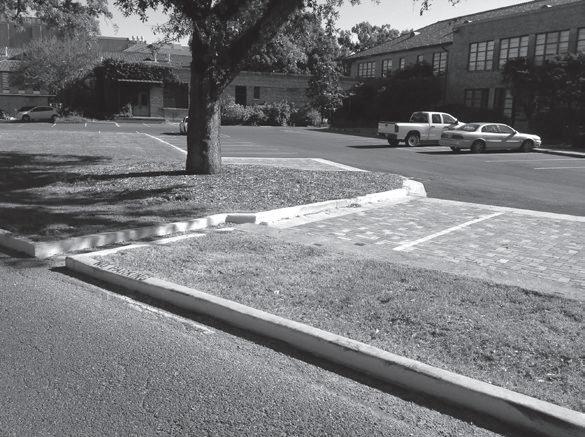arrangement of shared responsibilities between the civil engineer and landscape architect is usually satisfactory to both; the landscape architect can fuss over and resolve the less clear considerations involved in the preliminary or schematic design phase of a project, then transfer the detail and specification preparations to the engineer, whose production processes are more efficient once key design decisions have been resolved in the earlier phases by the landscape architect. This does not mean that the landscape architect stops at the preliminary phase of site-grading design. Very often the landscape architect’s contract with a client will include a scope of work to prepare all aspects of a project’s grading requirements. By education, followed with internship, professional experience, and licensure, a landscape architect is qualified to prepare grading plans for almost any situation; however, he or she may be limited administratively by state licensing laws that delimit scope of responsibilities of the design professionals. Landscape architects, for instance, can prepare the full set of grading plans for a 125-acre golf course, but may have limited responsibility on an interstate highway project that might include some grading associated with detail landscape planting or a special non-roadway feature (for instance, the design of a highway rest stop). Questions of professional liability (involving professional design or errors and omission insurance) may limit a landscape architect’s involvement. The professional practice insurance industry often influences the design work and responsibilities of the various professions. In actual practice, the responsibilities of the various professions working together on a project are negotiated and defined during the contract negotiation phase, before the actual design work begins. These negotiations often are initiated as the project design team comes together, with the lead design firm managing if not dictating the responsibilities: shared or otherwise.
Professional Registration to Practice Landscape Architecture Courses in grading and drainage are a required part of any landscape architecture or other related curriculum. This requirement is for university landscape programs that seek and maintain accreditation status. One of
22
Landscape Site Grading Principles

































